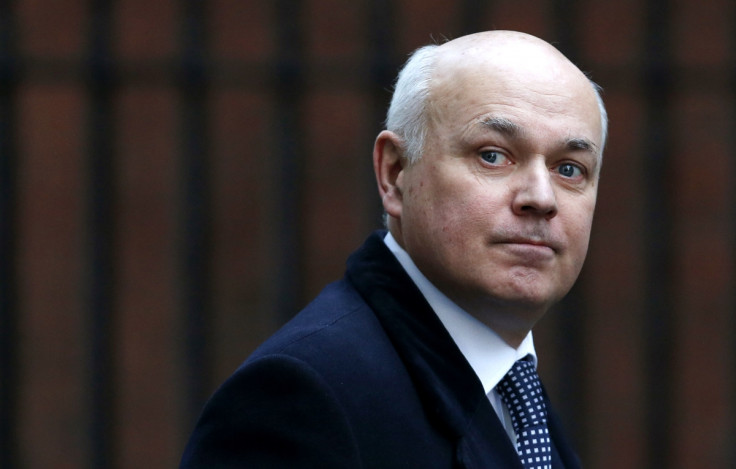UK Welfare Reform: DWP Spends £4.8m on Outside Consultants as Bill Quadruples

The Department for Work and Pensions almost quadrupled the amount it spent on consultants between 2014 and 2013, according to an analysis of official figures by IBTimes UK.
The ministry's records revealed that the total cost of non-payroll consultants/consultancy hit £4.8m ($8.2m, €6m) in May 2014, up from £1.29m a year before.
The increase represents a 273% hike in the amount spent on outsider advice for the DWP, which is the largest government department in the UK with a 96,008 strong workforce.
However, the official figures failed to disclose how many non-payroll consultants/consultancies worked for the ministry.
Meawhile, the data also revealed that the grand total cost for non-payroll and payroll workers for Iain Duncan Smith's department dropped by more than £15.2m over the same period.
The records showed that the DWP's total payout was more than £212m in May 2014, down from £227m in May 2013.
"It's good to see that the total staff bill is being trimmed, as savings desperately need to be made," Jonathan Isaby, chief executive of the TaxPayers' Alliance, told IBTimes UK.
"However, the increase in the bill for consultants is a cause for concern for taxpayers.
"Consultants are sometimes necessary, but it's crucial that the department retains staff with the necessary expertise to cut out a lot of the big fees."
A DWP spokesman said: "We use consultants to provide specific professional, technical or specialist advice when this is not available in-house, while undertaking some of the biggest welfare reforms in 60 years.
"We ensure value for money for the taxpayer and have successfully reduced the Department's running costs by £2bn a year."
The figures follow a warning from the National Audit Office that the DWP could overpay contractors of one of its flagship welfare reforms by £25m in bonuses due to contract "flaws".
The independent parliamentary body said that The Work Programme, which provides support, work experience and training for up to two years to help benefit claimants find and stay in work, is not working as the Department for Work and Pensions intended it to, with regard to incentive payments.
"Flaws in contracts and performance measures have led to unnecessary and avoidable costs," a report from the NAO said.
"The DWP may have paid contractors £11m in the period to March 2014 for performance they may not have actually achieved and could overpay contractors £25m over the remainder of the programme unless it changes its approach."
But the NAO said that the ministry has recognised where it has needed to make changes to contracts.
A DWP spokesperson said: "The Work Programme is helping more people than any previous employment programme and has already helped half a million people start a job and 300,000 into lasting work.
"The NAO says that we've already saved more than £40m over and above any previous employment programme, and that we'll save £450m on benefits compared with any scheme that has gone before."
© Copyright IBTimes 2024. All rights reserved.






